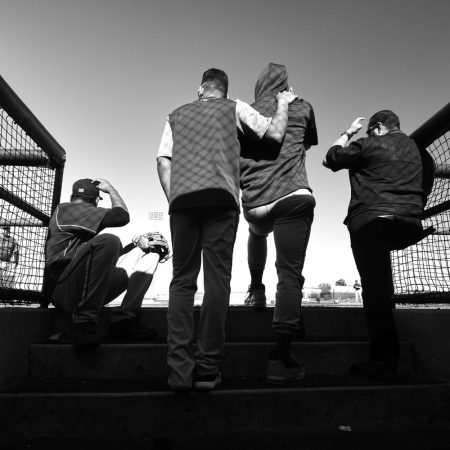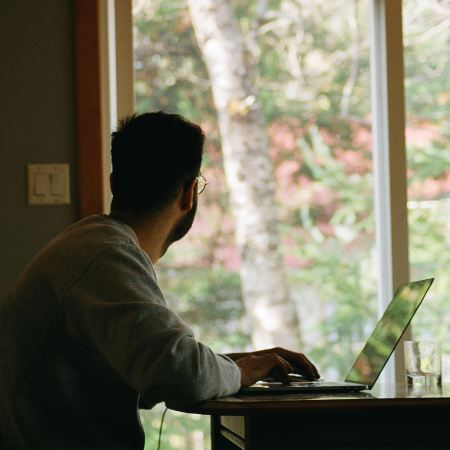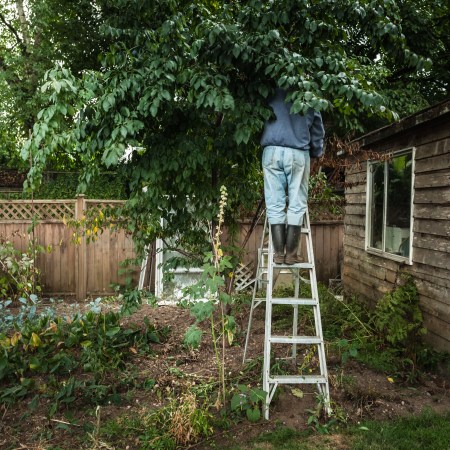In one of my favorite episodes of SmartLess — the comedy podcast hosted by Will Arnett, Jason Bateman and Sean Hayes — the trio interviews arguably the coolest cucumber around, George Timothy Clooney. It’s a freewheeling hour (the hosts always arrive unprepared for the show, I suspect on purpose), which runs the gamut: Clooney’s years torturing roommate Richard Kind, trips to Cannes with Ocean’s co-star Brad Pitt, the work he and his wife Amal Clooney have done to hold human rights violators like Omar al-Bashir to account.
But the most memorable portions of the show are whenever Clooney talks about fathering his two kids. They’re twins, now both five-years-old. He talks about playing pranks on them, bringing them along for shoots and projects (at the time of the taping, he was in Boston filming The Tender Bar), and making sure they know to prioritize truth and kindness above all else.
“It’s our job to make sure that they they care about people, that they challenge people in power and look out for people who don’t have power. Those are kind of the things I was raised with and believe in,” Clooney said.
On the sheer experience of having kids enter his life, he offered: “It’s what everyone else knows, which is that all the things that seemed important aren’t, you know, they really aren’t. And it’s hard to imagine them not being important before the kids showed up…These kids show up magically and and everything changes. And all of a sudden none of that really [matters]. You look back at you. That was such a mad race…it’s amazing when things are great, but it comes and goes very quickly. And, you know, you go home and there’s these knuckleheads there and it changes everything.”
Strong words, and spoken, perhaps, with the wisdom of a man who didn’t become a father until his mid-fifties. But it’s also a wisdom that many men never attain, and somewhat revolutionary to come from a smooth-talking American star, who (as he acknowledges in the same interview), inherited the leading “man’s man” baton from a litany of men like Paul Newman, Gregory Peck and others of that era, who primarily traded in stoicism.
In recent years, vulnerability and nourishment have proven essential to raising happier, healthier children. The 20th-century didn’t really get that memo. The “guarded father” paradigm was commonplace in post-war America; how many artists have described their dads sitting at the kitchen table with a beer at the close of each day, presumably drowning in trauma, unable to string together an “I love you” for decades on end?
But a mixture of sensitivity and silliness is crucial for fathers eager to coax out the full extent of their child’s emotional intelligence. Dads need to be caregivers, not just breadwinners. They need to actively play with their kids, not just punish them when they’ve upset Mom. According to Kevin Shafer, a fatherhood researcher, fathers are “fathers are transformative figures for children, families and communities.” When fathers make themselves available, their kids tend to “value emotional intelligence, gender equality and healthy competition.” When they don’t, their kids often turn out “hypercompetitive, emotionally stoic and unappreciative of women’s contributions outside the home.”
Having trouble picturing the latter? Go watch Succession. Shafer’s research may seem obvious on the surface, but keep in mind that the expectations for fatherhood, even in 2022, are somewhat vaguely defined. Motherhood is clear to us — nourishment above all else. Where do dads fit in? Is bringing home the bacon enough? Is coaching the little league team enough? Is fixing leaky faucets on Sunday mornings enough?
In reality, there’s no such thing as “enough.” Ideally, fatherhood takes on a role similar to what Danny Ocean is describing — a transformative “after” in the man’s life, where care and love are givens, expressed every day in myriad ways. “Positive fathering,” as Shafer calls it, doesn’t just benefit the children; it benefits the father’s partner (which, in turn, strengthens that relationship), and benefits the community, encouraging gender equality, open-mindedness and mental health in their generation and beyond.
Amidst a WFH era that doesn’t seem to be going anywhere, men will be spending more time at home with their kids. That’s created some complications, there’s no doubt. We’ve all seen a kid run across a background during a Zoom meeting.
But an updated, determinedly active form of fatherhood doesn’t have to feel like an assignment, or confinement — it can be wickedly fun, too. Clooney, a distinguished gentleman who calls Lake Como home and is the face of Nespresso, admitted that he often spreads nutella in his kids’ nappies, goes to their mom to “tell on them,” then promptly eats the shmear in front of her. Positive fathering, indeed.
Thanks for reading InsideHook. Sign up for our daily newsletter and be in the know.


















